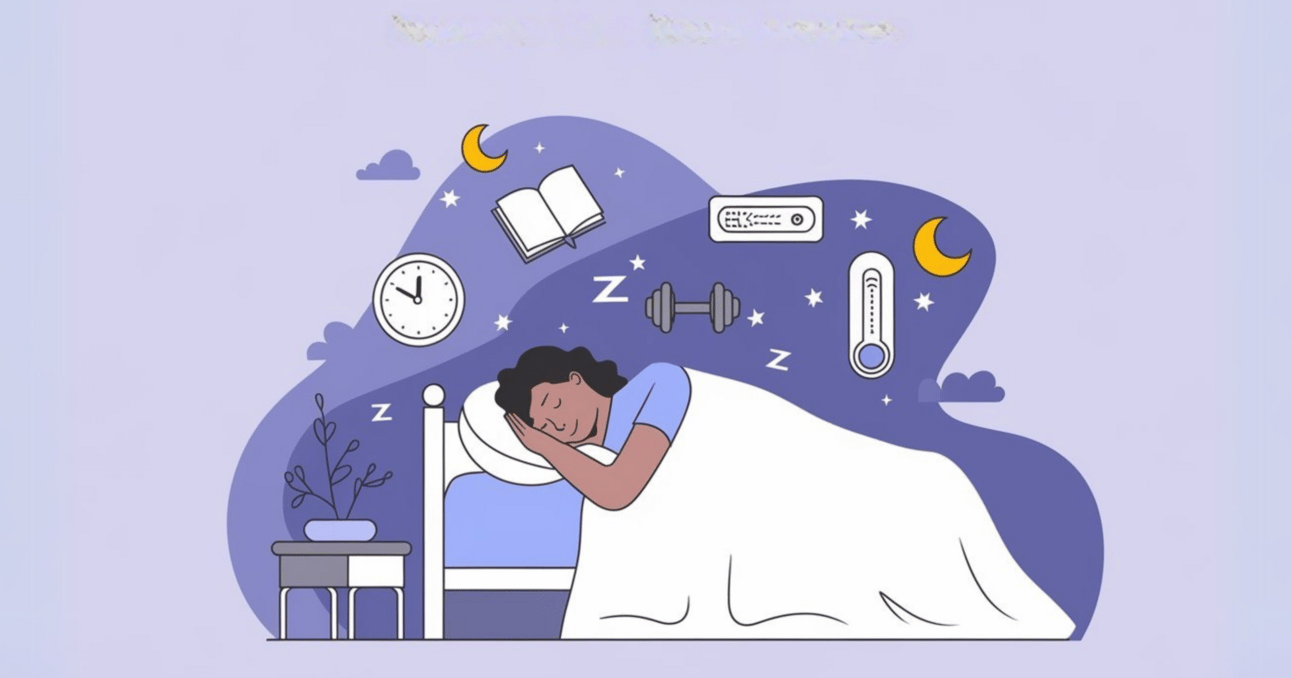First time reading ? Sign up here.
In today’s fast-paced world, getting a good night’s sleep can feel like a luxury. But quality sleep is essential for mental, physical, and emotional well-being. Whether you're struggling to fall asleep or waking up tired, these five proven methods can help you improve your sleep quality.
1. Optimize your bedroom environment
Your bedroom environment goes beyond just a comfortable bed and bedding. Factors like temperature, noise levels, ventilation, and air quality all play a role in sleep quality.
To create an optimal sleep space, try to reduce external noise, minimize light exposure, and limit artificial light from devices like alarm clocks. Maintaining a comfortable temperature — around 65°F (18.3°C) for most people — can also enhance sleep, though personal preferences may vary. Additionally, improving air quality by reducing allergens and ensuring proper ventilation can contribute to a healthier and more restful sleep environment.
2. Stick to a Consistent Sleep Schedule
Our bodies thrive on routine. Going to bed and waking up at the same time every day, even on weekends, helps regulate your body’s internal clock. This consistency signals to your brain when it’s time to sleep and when it’s time to wake up, making it easier to fall asleep and feel rested when you wake up. Aim for 7-9 hours of sleep each night, depending on your individual needs.
3. Don’t eat late in the evening
Eating late at night can negatively impact sleep quality. It's best to have dinner at least a few hours before bedtime. If you need a late-night snack, keep it light and avoid heavy meals.
The type of food you eat also matters — high-carb foods have been shown to disrupt sleep more than low-carb options. Choosing nutrient-dense, sleep-friendly snacks can help promote better rest.
4. Exercise regularly — but not before bed
Regular physical exercise can improve both sleep quality and overall health. It has been shown to enhance various aspects of sleep and can even help reduce symptoms of insomnia.
However, timing matters—exercising too late in the day may interfere with sleep due to its stimulating effects, increasing alertness and hormone levels like epinephrine and adrenaline. That said, individual responses may vary.
The Physical Activity Guidelines for Americans recommend at least 150 minutes of exercise per week. Spreading workouts throughout the week and allowing a few hours between exercise and bedtime can contribute to better sleep quality.
5. Take a melatonin supplement
Melatonin is a key hormone that signals to your brain when it’s time to relax and sleep. Melatonin supplements are a popular sleep aid and may help you fall asleep faster.
Since the FDA does not regulate melatonin as a drug, its quality and dosage can vary. Research suggests that doses between 0.1 to 10 mg taken up to two hours before bedtime may be effective.
It’s best to start with a low dose and adjust as needed. Before using melatonin, consult a healthcare professional, especially for children, as the long-term effects of melatonin use in kids are not well studied.
Final Thoughts
By adopting these proven practices, you can improve your sleep quality over time and wake up feeling more rested, refreshed, and ready to take on the day. Sleep is a vital part of a healthy lifestyle, and small changes can make a significant impact on how you feel each day.
Hope this helps!
Talk soon, Stay well
— Be Well Hacks Team
